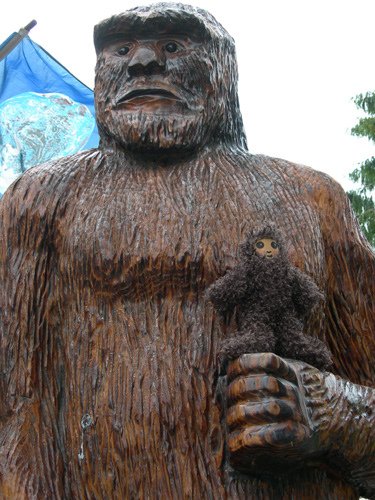Critical thinking is one for the history books

Bigfoot cares for its young. (credit: Katy Kristin)
The world as a whole has become increasingly reliant on science to provide its technology and inform its policy. But rampant conspiracy theories, fake news, and pseudoscience like homeopathy show that the world could use a bit more of the organized skepticism that provides the foundation of science. For that reason, it has often been suggested that an expanded science education program would help cut down on the acceptance of nonsense.
But a study done with undergrads at North Carolina State University suggests that a class on scientific research methods doesn't do much good. Instead, a class dedicated to critical analysis of nonsense in archeology was far more effective at getting students to reject a variety of pseudoscience and conspiracy theories. And it worked even better when the students got their own debunking project.
The study, done by Anne Collins McLaughlin and Alicia McGill, lumps together things like belief in astrology, conspiracy theories, and ancient aliens, calling them "epistemically unwarranted." Surveys show they're widely popular; nearly half the US population thinks astrology is either somewhat or very scientific, and the number has gone up over time.
Read 10 remaining paragraphs | Comments